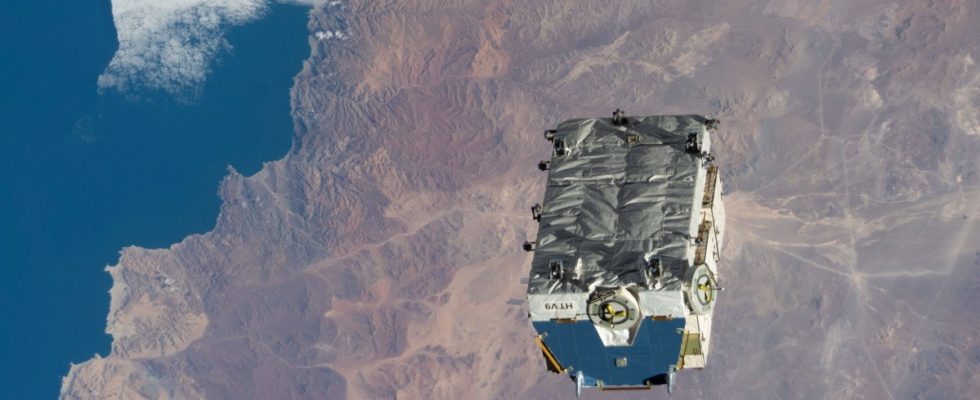Debris from a discarded battery pack from the International Space Station (EAT) descend to the earth. In all likelihood, they will not affect Germany. The Federal Ministry for Economic Affairs and Climate Protection (BMWK), which is responsible for space travel, and the German Aerospace Center (DLR) announced this unanimously on Thursday morning. According to DLR, the object could enter the atmosphere over northern North America according to recent calculations, but this assessment could still change. It is unlikely that parts of the battery pack will fall over Germany. The topic was initially discussed by the Picture reported.
The object is a platform with battery packs that was launched on March 21, 2021 EAT has been separated. It has the dimensions of a car and weighs 2.6 tons. When space debris falls to Earth, it typically breaks up as it enters the atmosphere and most of the pieces burn up. But there may be leftovers. “Initial analyzes by the German space situation center have shown that parts of the battery packs can survive re-entry and reach the earth’s surface,” said the DLR.
The International Space Station is also expected to crash back to Earth
Exactly where such parts end up on earth cannot be controlled and is difficult to calculate. The battery is slowed down when it enters the earth’s atmosphere. Before that, however, she flies over the globe several times, including Germany. The longer the object is in transit, the less accurate the forecast is as to when and where it will crash.
According to the DLR, it is currently “viewed as statistically unlikely” that parts of Germany will be hit. The BMWK even considers a threat to Germany to be “very unlikely”. Nevertheless, the property is being closely monitored, the BMWK continued. “If, contrary to expectations, there are indications that Germany is affected, the existing crisis response mechanisms of the federal and state governments will be used to respond appropriately to a possible threat.” The German space situation center in Uedem will monitor the further development of the upcoming re-entry and report to various federal ministries, state ministries and authorities.
Technical devices in space are often deliberately crashed in order to avoid polluting the earth’s orbit with further space debris. More than 11,500 tons of technological waste are already circling the earth, endangering space travel and satellites. Just a few weeks ago, the European space agency Esa caused an earth observation satellite to crash after 16 years in space. The device called ERS-2 crashed into the North Pacific on February 21. Also the EAT In 2030, when it has served its purpose, it will fall to earth over the Pacific, albeit in a controlled manner.

